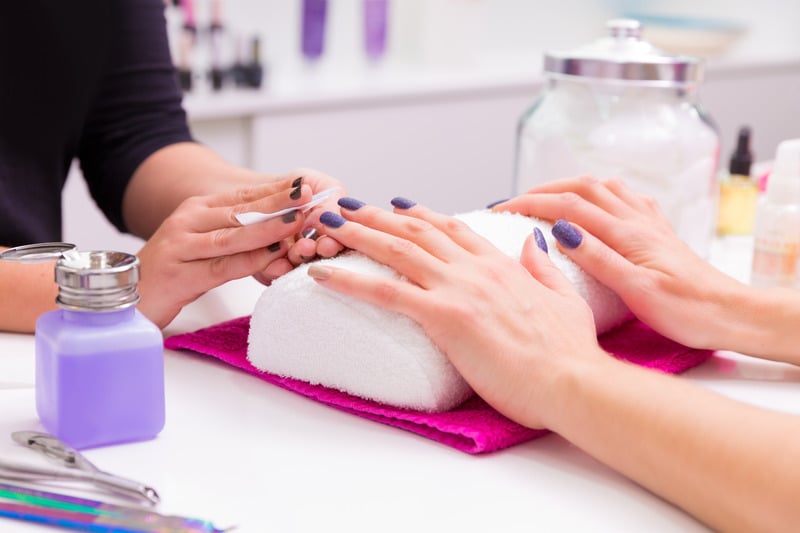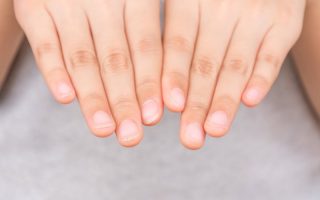As a musician, your hands are your most valuable asset. Whether you’re a pianist, guitarist, violinist, or any other type of instrumentalist, the health of your nails can significantly impact your technique and comfort during performances. Proper nail care is essential for preventing injuries, minimizing pain, and ensuring optimal hand function. This comprehensive guide will provide you with practical tips to protect and care for your nails, helping you maintain the best possible performance.
The Importance of Nail Health for Musicians
Nail health is crucial for musicians because it directly affects how you interact with your instrument. According to Dr. Michael Tierney, a dermatologist and music industry consultant, “The health of your nails is critical for musicians, impacting both technique and comfort during performance.” Proper nail care can enhance your finger flexibility, prevent injuries, and ensure that your nails do not hinder your playing.
Common Nail Problems for Musicians
Musicians often face specific nail-related issues due to the demands of their instruments. These problems include:
- Nail Breakage and Splitting: Constant pressure and friction can cause nails to break or split, which can be painful and affect playing.
- Nail Bed Infections: Bacteria and fungi can enter through small cuts or damaged areas, leading to infections.
- Pain and Discomfort: Improper nail length or shape can cause pain, especially when pressing strings or keys.
- Weak Nails: Frequent exposure to water, cleaning products, and other factors can weaken nails, making them more prone to damage.
Understanding Nail Structure
Nails are made of a protein called keratin, which also forms hair and the outer layer of skin. The visible part of the nail is the nail plate, and underneath it is the nail bed. The cuticle protects the new keratin cells that form at the base of the nail. Understanding this structure is essential for proper nail care.
Essential Nail Care Tips for Musicians
1. Keep Nails at an Optimal Length
The ideal nail length varies depending on the instrument you play. For example, guitarists may prefer slightly longer nails on their picking hand and shorter nails on their fretting hand. Pianists usually need short nails to avoid clicking on the keys. Dr. Jessica Araki, an orthopedic surgeon and musician, advises, “Musicians should pay attention to nail strength, moisture, and any signs of infection to maintain optimal hand function.”
2. File Your Nails Regularly
Regular filing helps maintain the shape and smooth edges of your nails, reducing the risk of breakage. Use a fine-grit nail file and file in one direction to prevent splitting.
3. Moisturize Your Nails and Cuticles
Keeping your nails and cuticles moisturized prevents them from becoming dry and brittle. Use a nourishing hand cream and cuticle oil daily. Look for products containing natural oils like jojoba or almond oil.
4. Strengthen Your Nails
To strengthen weak nails, consider using a nail hardener. Be cautious, as some hardeners contain formaldehyde, which can cause allergic reactions. Opt for formaldehyde-free products.
5. Protect Your Nails During Practice
Wearing gloves during practice and performance can protect nails from pressure and friction, reducing the risk of damage. Patricia DiBari, a national certified massage therapist and musician, suggests this simple yet effective measure to protect your nails.
6. Maintain Proper Hand Hygiene
Wash your hands regularly and keep your nails clean to prevent infections. Avoid using harsh soaps that can dry out your skin and nails.
7. Avoid Overexposure to Water
Frequent exposure to water can weaken your nails. Wear gloves when doing dishes or cleaning, and dry your hands thoroughly after washing them.
8. Use a Nail Strengthening Diet
Your diet can significantly impact the health of your nails. Ensure you consume enough protein, vitamins, and minerals. Foods rich in biotin, such as eggs, nuts, and whole grains, can strengthen nails.
Addressing Specific Nail Problems
Nail Breakage and Splitting
If you experience frequent nail breakage, consider the following:
- Use a Nail Strengthener: Apply a nail strengthening treatment to protect your nails from damage.
- Avoid Using Your Nails as Tools: Do not use your nails to open cans or scratch surfaces.
- Wear Protective Gloves: Use gloves when doing activities that put stress on your nails.
Nail Bed Infections
Prevent infections by:
- Keeping Nails Clean and Dry: Ensure your nails are clean and dry to prevent bacteria and fungi from growing.
- Using Antibacterial Hand Wash: Use an antibacterial hand wash to reduce the risk of infections.
- Avoiding Harsh Chemicals: Limit exposure to harsh chemicals that can damage your nails and skin.
Pain and Discomfort
To alleviate pain and discomfort:
- Adjust Nail Length: Ensure your nails are not too long or too short for your instrument.
- Use Padding: Consider using padding on your fingers if you play an instrument that causes significant pressure.
- Take Breaks: Give your hands regular breaks to prevent overuse and strain.
Creating a Nail Care Routine
Developing a consistent nail care routine can help you maintain healthy nails. Here’s a simple routine to follow:
- Daily Care:
- Moisturize your hands and cuticles.
- Keep nails clean and dry.
- Weekly Care:
- File your nails to maintain the desired shape.
- Apply a nail strengthening treatment.
- Give yourself a gentle hand massage to improve blood circulation.
- Monthly Care:
- Trim your nails if necessary.
- Deep condition your nails and cuticles using a nourishing nail mask or oil treatment.
Adapting Nail Care to Different Instruments
Guitarists
Guitarists often need to balance the length of their nails on both hands. The picking hand usually benefits from slightly longer nails to help with plucking the strings, while the fretting hand requires shorter nails for easier finger placement on the fretboard.
Tip: Use a nail buffer to smooth out the edges of your nails on the picking hand to prevent them from catching on the strings.
Pianists
Pianists need short, well-maintained nails to avoid any clicking sounds while playing. Keeping nails trimmed and filed ensures that they don’t interfere with the keys.
Tip: Regularly check your nail length and file them down if you notice any clicking while playing.
Violinists and Violists
String instrument players require short nails on their left hand to facilitate smooth finger placement on the strings. The bowing hand’s nails can be slightly longer but should still be well-maintained.
Tip: Consider using a cuticle cream to keep the skin around your nails soft and prevent hangnails that can be painful and distracting.
Drummers
Drummers should focus on maintaining nail strength to withstand the impact of playing. Short, rounded nails are ideal to prevent any snagging on drumsticks.
Tip: Use a strengthening nail treatment to keep your nails resilient against the constant impact of drumming.
The Role of Nutrition in Nail Health
A balanced diet is essential for maintaining strong and healthy nails. Certain nutrients play a crucial role in nail health, including:
- Protein: Nails are made of keratin, a type of protein. Ensure you consume enough protein-rich foods like lean meats, fish, eggs, and legumes.
- Biotin: This B vitamin promotes nail strength and growth. Foods like eggs, almonds, and sweet potatoes are rich in biotin.
- Omega-3 Fatty Acids: These fats help keep your nails hydrated. Include sources like salmon, walnuts, and flaxseeds in your diet.
- Zinc: Zinc is crucial for nail repair and growth. Foods high in zinc include oysters, beef, and pumpkin seeds.
- Iron: Iron deficiency can lead to brittle nails. Include iron-rich foods like spinach, lentils, and red meat.
Dealing with Nail Emergencies
Despite your best efforts, nail emergencies can still happen. Here’s how to handle common issues:
Broken Nail
- Temporary Fix: Use a nail glue to reattach the broken piece temporarily. This can hold you over until you can properly repair it.
- Permanent Fix: Trim the nail as much as possible and file it smoothly. Apply a strengthening treatment to help it grow back stronger.
Hangnails
- Treatment: Do not pull or bite hangnails, as this can lead to infections. Use sterilized nail clippers to trim them carefully.
- Prevention: Keep your cuticles moisturized to prevent them from drying out and forming hangnails.
Conclusion
Proper nail care is essential for musicians to maintain the health and functionality of their hands. By following these tips and creating a consistent nail care routine, you can protect your nails from damage, enhance your performance, and ensure that your hands remain in top condition. Remember, your hands are your most valuable instrument, so take good care of them to keep making beautiful music.



